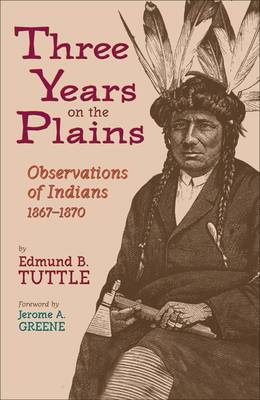
- Retrait gratuit dans votre magasin Club
- 7.000.000 titres dans notre catalogue
- Payer en toute sécurité
- Toujours un magasin près de chez vous
- Retrait gratuit dans votre magasin Club
- 7.000.0000 titres dans notre catalogue
- Payer en toute sécurité
- Toujours un magasin près de chez vous
Description
History has its heroes and its villains, but most of all it has its witnesses. As post chaplain at Fort D. A. Russell in Wyoming Territory from 1867 to 1870, the Reverend Edmund B. Tuttle was an eyewitness to the evolving relationship between the U.S. Army and American Indians on the northern high plains, particularly the Lakota (Sioux), the Northern Cheyennes, and the Northern Arapahos. In 1873, he wrote about his experiences, along with events derived from other sources.
Tuttle knew many of the individuals involved in the various Indian-Anglo conflicts during the 1860s. His writings and interpretations furnish important information about the military occupation of the Bozeman Trail and about the Fort Laramie "massacre" of 1866, when Sioux, Cheyennes, and Arapahos wiped out Captain William J. Fetterman and his command. Tuttle's book also includes more peaceful events, such as Oglala Sioux chief Red Cloud's visit to Washington and New York City and the 1868 negotiations at Fort Phil Kearney. In some cases, Tuttle presents transcriptions of American Indian testimony given at the various meetings between Indian leaders and government officials. Jerome A. Greene's foreword sets Tuttle's writings in historical context.
Spécifications
Parties prenantes
- Auteur(s) :
- Editeur:
Contenu
- Nombre de pages :
- 216
- Langue:
- Anglais
- Collection :
- Tome:
- n° 66
Caractéristiques
- EAN:
- 9780806134949
- Date de parution :
- 15-06-03
- Format:
- Livre broché
- Format numérique:
- Trade paperback (VS)
- Dimensions :
- 122 mm x 192 mm
- Poids :
- 240 g

Les avis
Nous publions uniquement les avis qui respectent les conditions requises. Consultez nos conditions pour les avis.






